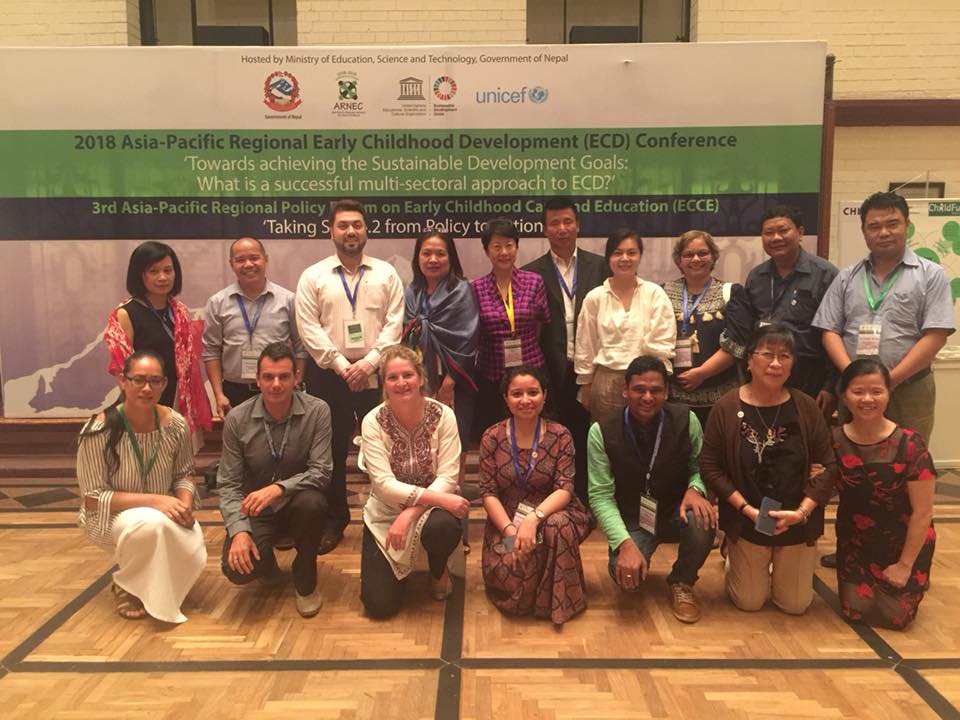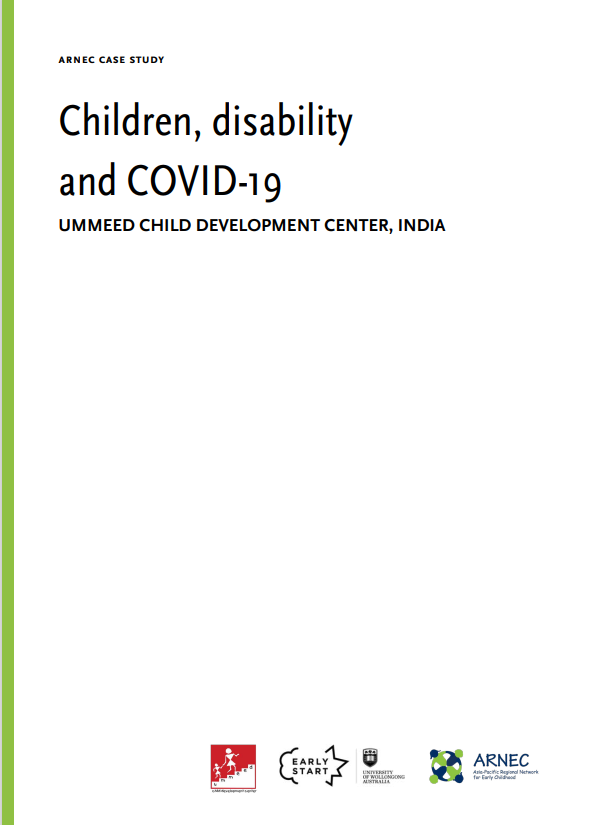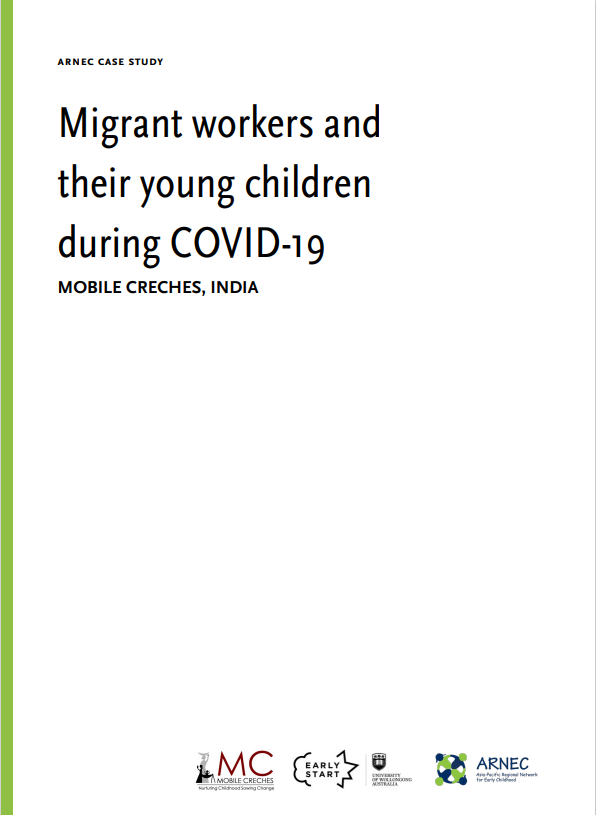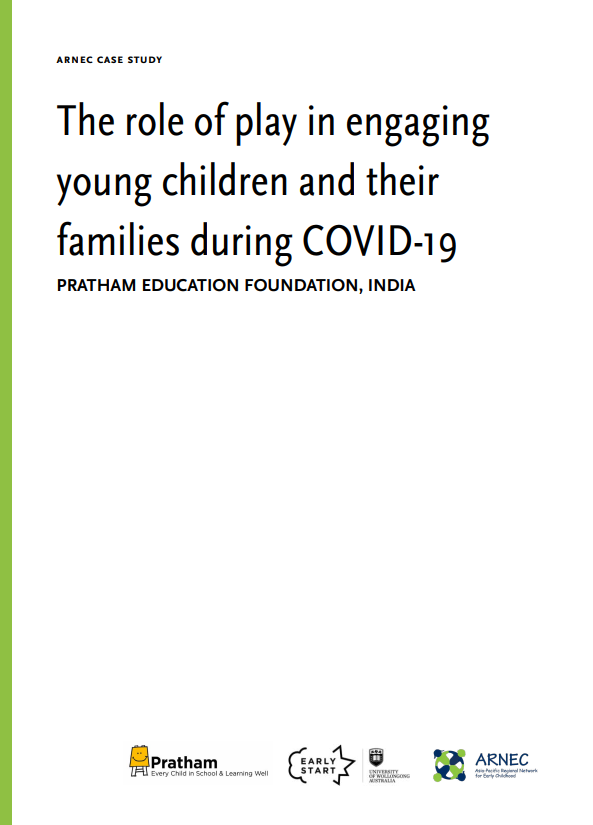
India
In India, the term ECCE is generally used to reference coverage of care and education services for children between 0-6 years. There is a wide ranging of service providers, including public, private, NGOs, crèches for working mothers, and pre‐primary schools (3‐6 years).
ECCE was initially recognized in India within the 1986 National Education Policy. In 2013, the approved National Early Childhood Care and Education (ECCE) Policy reinforces the Government’s commitment to integrated ECCE for the holistic development of children with a focus on care and learning. The nationally-sponsored and state-implemented Integrated Child Development Services (ICDS) program strives to enhance children’s school readiness and holistic development.
Despite national attention placed on ECCE, many children still lack access to preschools. Issues such as stunting, high under-5 mortality rates, and low birth weight continue to persist in India even though progress has been made through the ICDS program on maternal and child health.
- National Institute of Public Cooperation and Child Development. (2006). Select issues concerning ECCE in India (pp.24) (Paper commissioned for the EFA Global Monitoring Report 2007, Strong foundations: early childhood care and education).
- UNICEF India. What we do: Early childhood education (Accessed April 26, 2016).
- Rao and Sun. (2010). Early childhood care and education in the Asia Pacific region: Moving towards goal 1 (pp. 33). (Paper commissioned for the UNESCO Regional Bureau for Education in Asia and the Pacific’s World Conference on Early Childhood Care and Education (WCECCE) in Moscow 2010).
Challenges
- Lack of universal ECCE access for children between conception and six years of age.
- Difficulty in integrating quality ECCE services targeting the two age segments:
- under-three and
- pre-primary children between 3 and 6 years of age.
- Limited policy regulations and financing on ECCE provisions by the Government.
Priorities
- Provide comprehensive ECCE services between conception to age six for children’s holistic development.
- Universal inclusive ECCE access to include vulnerable children.
- Capacity building of human resources to improve quality.
- Develop and enforce quality standards and curriculum framework.
- Increase awareness on the importance of ECCE by partnering with communities and families. Promote diversity and culturally-appropriate strategies within a decentralized framework.
Stay tuned as we'll be publishing the updated Country Profile soon.
Ministries in charge
Ministry of Women and Child Development in collaboration with Ministry of Health and Family Welfare, Ministry of Human Resource Development, and Ministry of Social Justice and Empowerment.
Key Policies
- National ECCE Policy approved in 2013. Policy includes National Curriculum Framework and Quality Standards for ECCE.
- National Early Childhood Care and Education Policy 2013
- National Policy on Education 1986
- State Plan of Action for Children (2014-18): Part I
- State Plan of Action for Children (2014-18): Part II National Policy for Children 2013
National ECD Network
National Representative

Jyoti Dhingra- Jdhingra@newber.com
Meenakshi Dogra- Meenakshi990@gmail.com
Moses Andrews- Moses@haci.in
Neelima Chopra-Neelima.chopra@yahoo.co.in
Noteworthy Practices
1. Sajag caregiver program to support under-three children (Implemented by UNICEF)
Noteworthy aspects:
- Partnerships to integrate services across sectors of health, nutrition, and psychosocial development. Materials developed are contextualized and culturally-sensitive. Organic and evolutionary approach in refining implementation to cater to the needs of families and communities.
- Achievements: Scale-up of program to the state level, including dissemination of advocacy messages to enable caregivers/parents to support young children’s holistic development. Also, capacity developed for 70,000 health workers via training on psychosocial stimulation.
2. Childcare services for migrant children in informal settings (Implemented by Mobile Crèches or MC)
Noteworthy aspects:
- Three models to ensure delivery of integrated services on health, nutrition, early learning, and care for children living in construction sites and slums, through: i) daycare provisions; ii) advocacy to build demand for childcare; and iii) caregiver trainings for parents and childcare providers.
- Achievements: A cost-effective scalable childcare model for children in marginalized communities with 100 network partners, 200 builders partnered, 6,500 women trained, 650 daycare centers, and 7,50,000 children reached.
3. Caregivers' empowerment to benefit orphaned and vulnerable children (Implemented by Hands to Heart International)
Noteworthy aspects:
- Support caregivers by reinforcing good practices, such as bonding and attachment, to encourage children’s holistic development. Develop capacities of other organizations to reach the communities.
- Achievements: 9 countries reached with 43,570 caregivers trained to impact over 157,000 children (as of Dec 2015).
4. Galli Galli Sim Sim: Use of media to improve children’s development (Implemented by Sesame Workshop India)
Noteworthy aspects:
- Engaging educational content through media, such as television, radio, print, and digital outreach to reach children aged 0-8, to promote cultural diversity, academic, and life skills.
- Achievements: Television series has reached over 10 million children since its inception in 2006.
Latest Resources
Lorem ipsum dolor sit amet, consectetur adipiscing elit. Aliquam at porttitor sem. Aliquam erat volutpat. Donec placerat nisl magna, et faucibus arcu condimentum sed.


